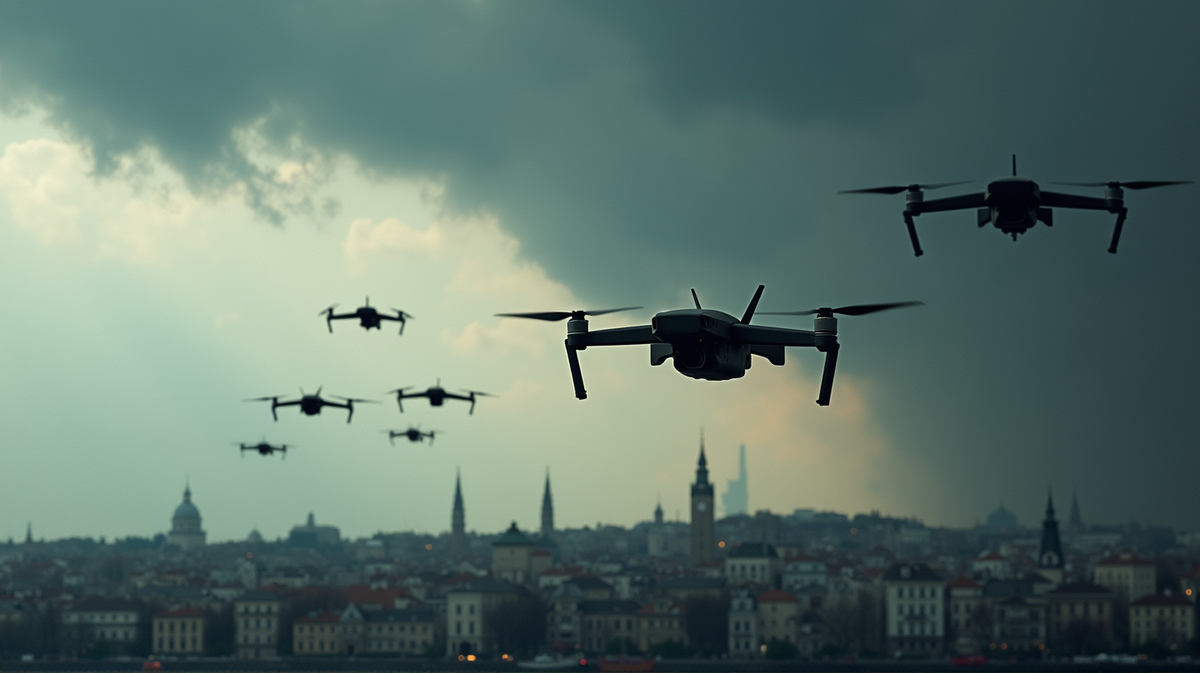Russian Drones Breach NATO Airspace: A Looming Threat to Unity?
A daring Russian drone incursion over Poland challenges NATO's unity. Can the alliance uphold its deterrence without U.S. intervention?

The recent breach of NATO airspace by Russian drones over Poland has rattled the foundations of the alliance, spotlighting the challenges and strategic imperatives facing member nations. As Warsaw and allied forces successfully fended off this bold incursion, questions linger about NATO’s unity and ability to deter further aggression.
The Incident’s Anatomy
In an event that drew international attention, nearly 20 Russian drones made an audacious incursion into Polish airspace. This forced Poland and its NATO allies to respond with decisive military action, marking a significant escalation and the first direct engagement with a Russian target during ongoing tensions with Moscow. With the dramatic showdown unfolding, NATO’s collective defense obligations were thrust into the global spotlight.
Trump’s Tepid Reaction Sparks Concerns
As the confrontation unfolded, U.S. President Donald Trump notably minimized the severity of the incident, suggesting it could have been a mistaken maneuver. Despite reaffirming solidarity with Poland during talks with President Karol Nawrocki, Trump’s muted response and lack of immediate military support have raised alarm across European diplomatic circles. According to Modern Diplomacy, this incident underscores existing anxieties about the reliability of U.S. commitment to NATO’s security framework.
European Doubts and Alliances
The incident has amplified lingering doubts in Europe about America’s steadfastness in its NATO obligations. While Poland moved to engage Article 4 discussions, considering new strategic deployments, the gap between European expectations and American strategic priorities becomes more apparent. German authorities and former NATO Ambassador Ivo Daalder emphasize the precariousness of current alliances under Trump’s “America First” doctrine.
Strategic Implications for NATO
Analysts predict the drone breach will considerably influence NATO’s strategic posture in the upcoming months. As Europe contemplates enhancing its own defense capabilities, there is a growing realization of the need for an autonomous security framework. Meanwhile, Russia’s tactical provocations highlight ongoing testing of NATO’s resolve, potentially altering future U.S. diplomatic and military stances.
A Test of Resolve
As the dust settles on this incident, NATO faces the critical task of balancing unity with assertive deterrence. Whether this event spurs a renewed transatlantic alignment or emphasizes the need for European military autonomy remains uncertain, yet it ensures NATO’s approaches and cohesion will be rigorously tested as global tensions persist.





